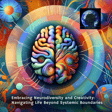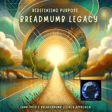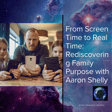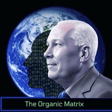
Fortify Your Digital Life: Avoiding Cyber Sabotoge, for Business Owners, Employees, and Everyday Internet Users
Join us for an insightful episode as we explore the world of cybersecurity with Albert E. Whale, founder and CEO of IT Security Solutions, Inc. With over 30 years of experience in leading teams to better cybersecurity, Albert is a renowned expert in the field. In this episode, he shares valuable insights on building secure digital environments and protecting sensitive information. We discuss pressing issues such as the quality of security in online money trading apps, risks of social media and website information leaks, and concerns surrounding popular platforms like TikTok. Albert's mission is to empower businesses and individuals to take control of their cybersecurity journey. Don't miss this opportunity to learn from an industry expert and gain practical tips to enhance your digital security. Share this episode to spread awareness and connect with us on social media to join the conversation. Visit https://TheHackedBook.com to explore Albert's book and coaching services. Let's build a safer digital world together.
Thanks for tuning in to the Organic Matrix Show - we hope you've found our Matrix Mentors and their insights inspiring and helpful!
If you're enjoying the show, there are two easy ways you can help us grow and reach even more amazing Matrix members:
- Share the show with your friends and followers on social media. Word of mouth is one of the most powerful ways to spread the word about our show and help us reach new listeners.
- Leave us a review on your favorite podcast platform. Not only does this help us improve the show and serve our audience better, but it also helps us rank higher in search results and reach more people.
Every share and review helps us grow and reach more people looking to level up their personal and professional growth. We appreciate your support and look forward to continuing to serve our incredible community of Matrix members. Thank you!"
Find our past episodes and tools to navigate through your Matrix on our website WWW.OrganicMatrix.net
BlendJet🥤 Tired of overpriced smoothies? Make your own with BlendJet 2 portable blender! Use code OrganicMatrix12 for 12% OFF & free shipping!🔥
https://zen.ai/organicmatrix12
Laird Superfood☕ Switch to all-natural, clean-energy Laird Superfood Creamers. Use code organicmatrix for 15% OFF at lairdsuperfood.com 🌱💥
Wongo Puzzles🧩 Upgrade to premium wooden Wongo Puzzles for endless fun! Use code organicmatrix for 10% OFF at wongopuzzles.com🌟🎁 https://zen.ai/organicmatrix10
Bulk Supplements💊 Discover pure, affordable supplements at BulkSupplements.com! Use code OrganicMatrix for a discount on future purchases!💪🌈


















